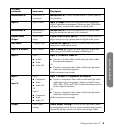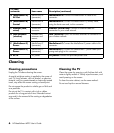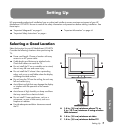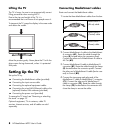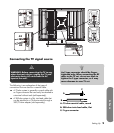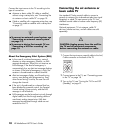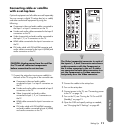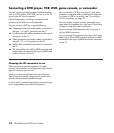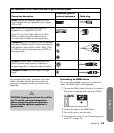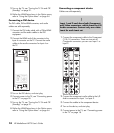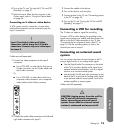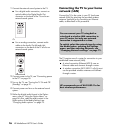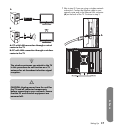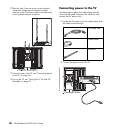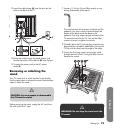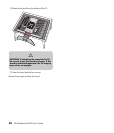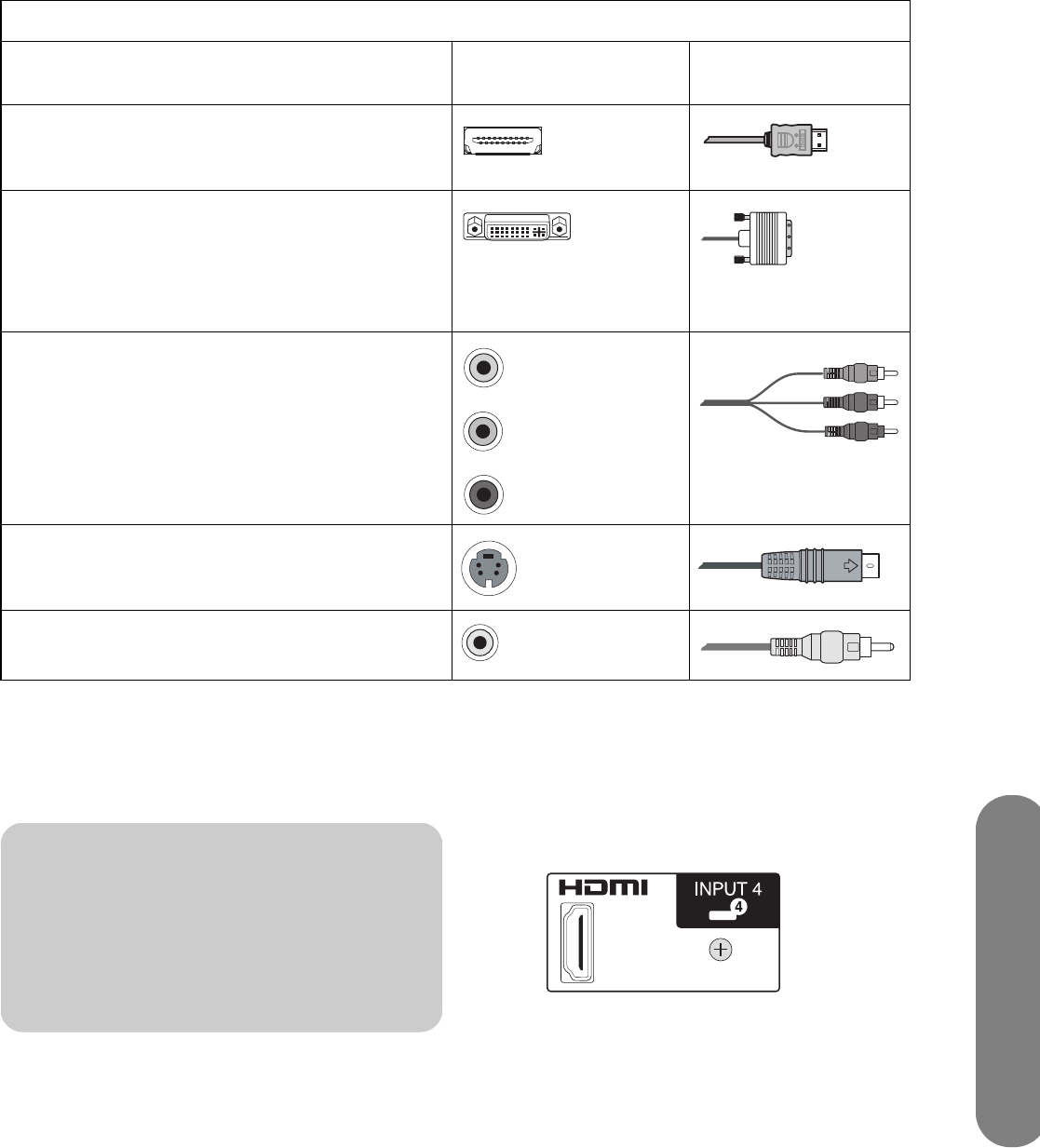
Setting Up
Setting Up 13
The procedures that follow, presented in the order
listed in the table, describe connecting optional
equipment including the audio connections when
applicable.
Connecting an HDMI device
This is the recommended connection for video and
audio. The HDMI cable is sold separately.
1 Connect the HDMI cable to the Input 4 connector.
(There are no separate audio inputs for HDMI.)
2 Connect the cable to the HDMI device.
3 Turn on the device, and start play.
4 Connect power to the TV; see “Connecting power
to the TV” on page 18.
AV connection to use, listed from best to good video playback
Connection description
Connector types on
optional equipment Cable plug
HDMI transmits an all-digital signal and is the
recommended choice for playback from a digital
DVD or DVR.
DVI transmits an all-digital video signal for
playback from a digital DVD or DVR.
(At the TV, use a DVI video cable with a DVI-to-
HDMI converter and audio cable to Input 4.
Converter and all cables are sold separately.)
Component (Y, Pb, Pr) transmits video as separate
red, green, and blue signals. Use this connection for
high-definition video signals in 480i, 480p, 720p,
or 1080i format from a progressive scan DVD or
other equipment.
S-video transmits video in separate color and
black-and-white image signals and delivers a
sharper image than a composite video connection.
Composite video transmits video as a single
signal.
c
CAUTION: Unplug power from the wall for
the TV and all connected components
before connecting optional equipment.
Ensure that the optional equipment is
powered off.



